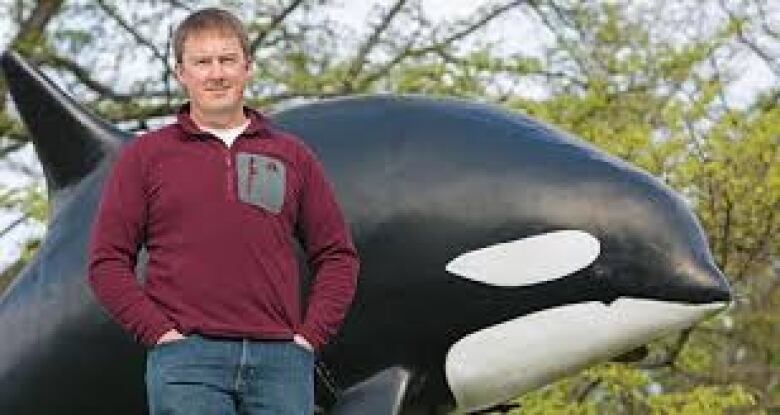Ban on Vancouver Aquarium cetacean display could backfire, author says
'There's a danger of being out of sight and out of mind'

The call for a ban on the public display of whales and other cetaceans at the Vancouver Aquarium could ultimately hurt rather than help the large mammals, according to a University of Victoria historian and author.
Jason Colby, author of the forthcoming book Orca: How the Quest to Capture Killer Whales Transformed Our View of the Ocean's Greatest Predator, said the reaction to the recent deaths of two belugas at the aquarium is well-intentioned but short-sighted.
"There's a much bigger picture here than the question of a few cetaceans in captivity," Colby told On the Island host Gregor Craigie.
- Vancouver Aquarium 'deeply disappointed' with park board vote to ban cetaceans
- Vancouver Aquarium bringing back belugas despite mysterious deaths
- Q&A: CEO of Vancouver Aquarium on future of beluga exhibit after Qila's death
Vancouver Park Board commissioners voted earlier this month to amend bylaws to prohibit the importation and display of porpoises, whales or dolphins at the aquarium.
Aquarium CEO and president Dr. John Nightingale has responded that such a ban will hurt research and devastate marine mammal rescue efforts.
Colby said critics mistakenly assume that profit is the sole reason for putting whales, dolphins and other cetaceans on public display.
"I would really like to push back against that," he said.

"People need to understand that historically the display of cetaceans has transformed public view, it has transformed the scientific view of cetaceans and the way that scientists interact," he said.
People should not assume public commitment to protecting them is complete, he said.
"There's a danger of being out of sight and out of mind."
Colby said there's legitimate concern about keeping orcas in captivity because of their size and social complexity.
However, he said, the Vancouver Aquarium is the best and in some cases the only place for taking in rescued and injured cetaceans such as bottlenose dolphins, porpoises and other marine mammals.

"It should be injured and rescued animals that are used for display," he said.
"Because there's no more powerful visual impression of that than witnessing an animal that's suffered because of human violence or human damage to the environment."
With files from CBC Radio One On the Island